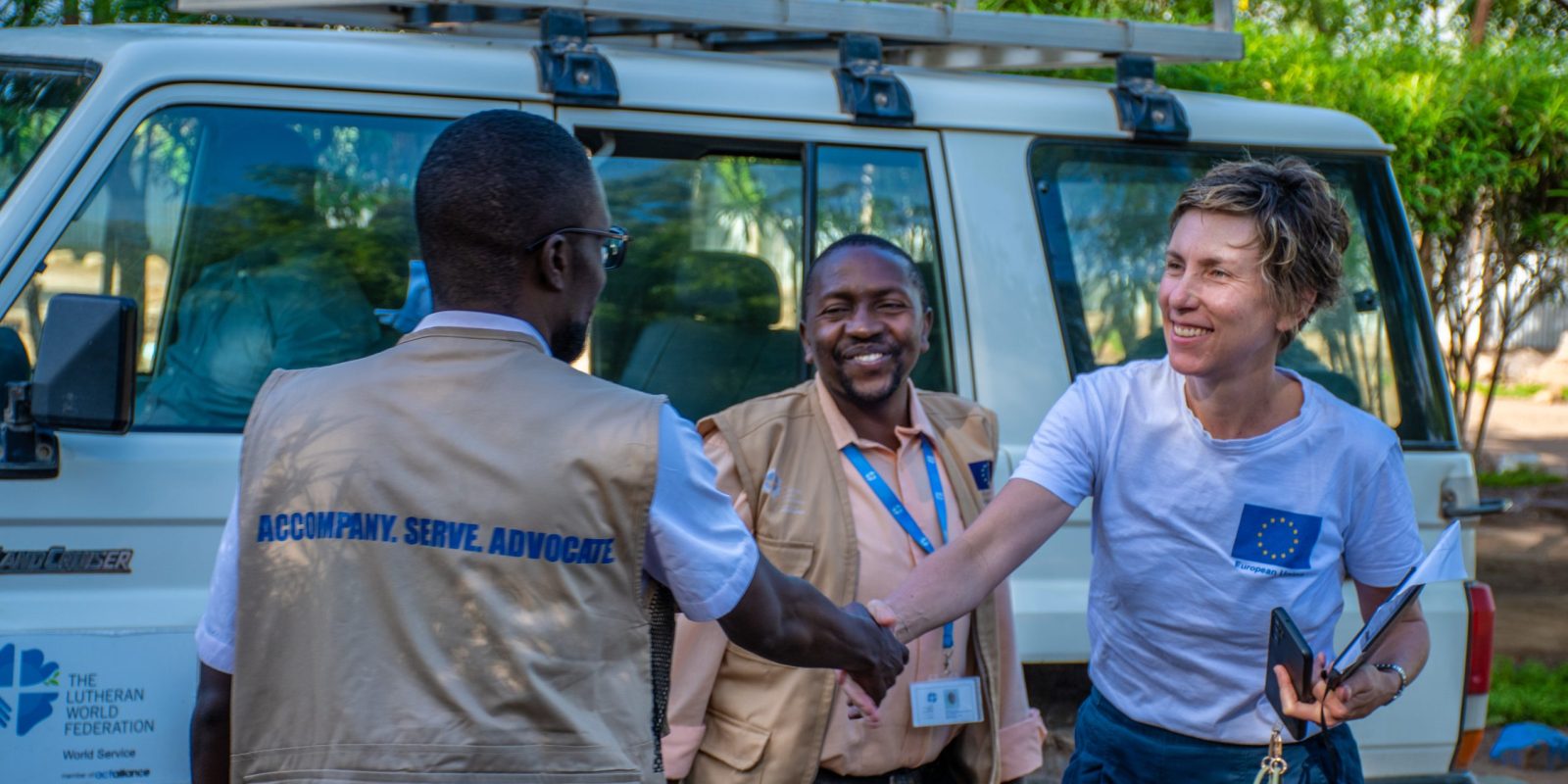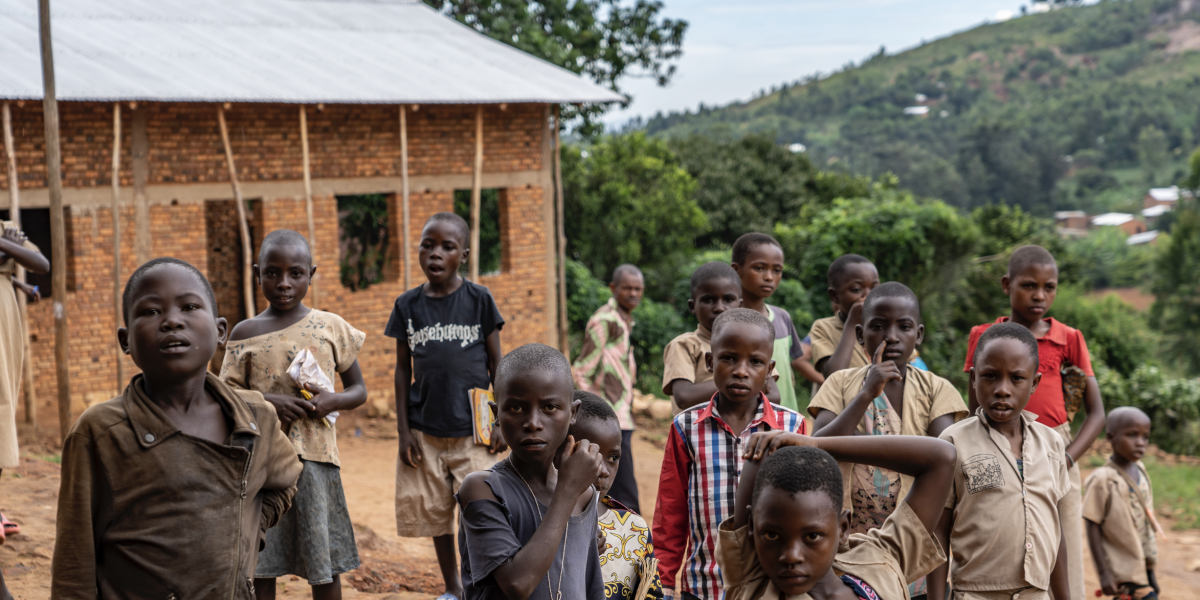
Burundi is a country that has been highly affected by the interference of weather and climate change. Being a low urbanized territory, with little economic resources and a population with low educational levels, the impacts of climate change have profound impacts.
An example of this are schools in rural environments, such the schools in the Kinama or Cibitoke area, that have been severely affected by climate change.
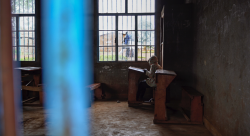
In Kinama, an area with a high refugee population and where JRS has been working with schools for several years, the degradation of the infrastructures and the climatic interference have caused the closure of classrooms in Kinama Primary and Secondary School.
The poor quality of the classes and the increasingly violent rains resulted in leaks, cold and discomfort in the classrooms. Discomfort that led to fights and conflicts among students. Who, in some cases, came to abandon education due to discomfort at school.
JRS, thanks to the support of Entreculturas and the Spanish Agency for International Development Cooperation (AECID), were able to rebuild several classrooms and restore dignity to the main educational center in Kinama.
But the Kinama school is just one example of this.
This year we were able to visit the rural schools in the Cibitoke region, a much more rugged region even than Kinama, and therefore poorer and more vulnerable to the effects of climate.
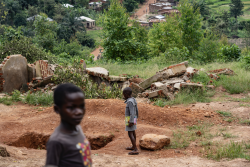
David Nyikinza, coordinator of education in the region, tells the cases of two specific primary schools: Rusagara and Gisoko, which have been strongly affected by deforestation and climate change.
Cibitoke, despite still being at first glance a paradise of vegetation, has suffered greatly from deforestation by local communities: for construction, for domestic use, as well as for the creation of agricultural exploitations. This deforestation, combined with torrential rains and increasingly violent winds, has caused landslides and some hillsides to collapse.
Télesphore Niyonzima, director of the Rugasara School, tells us how one morning in April, upon reaching the center, they found the latrines destroyed due to a landslide on the hill where the school is located. 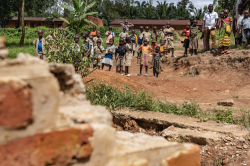
The consequences of this incident go beyond the simple loss of infrastructure. The school does not have enough means to rebuild the lost latrines, so in a center with more than 1,000 students they have gone from having 10 latrines to having only 3, which is having effects on the hygiene and health of the center.
“The children are very young, so since they don’t have enough latrines, they relieve themselves anywhere in the yard or in the woods. This can have detrimental consequences for their health.”
Gisoko Primary School is another example of this. In the case of Gisoko, it was not a landslide that caused the destruction of a part of the school, but the heavy rains and the wind.
As in Rusagara, one morning when the teachers returned to school, they found that one of the classroom blocks had collapsed. Ndaize Speciose, directrice of the center, told us how they had to look for alternative spaces to carry out the classes.
By having students in congested classes and not prepared to be classrooms (bad ventilation and lighting, lack of desks for all students, and the loss of school material the night of the incident), some children have chosen to stop going to school. Child labor and early marriage are only some of the consequences of children dropping out of school.
As in Rusagara, the Gisoko school is still waiting to mobilize sufficient funds to rebuild the lost classrooms and be able to resume classes as normal.
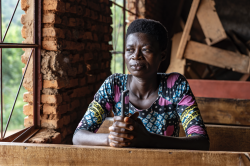
The effects of climate change in educational centers in rural areas such as Burundi go far beyond the change in the landscape: short, medium, and long-term social and human consequences for children and young people are indisputable.
To respond to this situation, JRS together with the Ministry of Education and other partners in education have started in 2023 to implement “Clubs d’énvironement”: clubs with students and teachers in different schools to learn about climate change and the importance of caring for the environment.
The objective of these clubs is that the students themselves, the boys and girls who will be the actors of tomorrow, develop an awareness of the environment as well as become agents of change in their community.
To accompany this activity, many centers such as Rusagara have begun to plant trees with the students. Although all this must be accompanied by greater investment in infrastructure, especially in schools and rural educational centers.
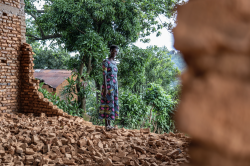
It is important to make children participants in the change and the importance of caring for the environment. And what better place for it than in schools, the same ones that have been affected by climate change.
With this, we will not only be able to reduce the consequences of climate change, but also ensure the continuity and quality of education.
Because once a child stops his education, taking it up again is an even greater challenge. And the long-term consequences will affect an entire community.

